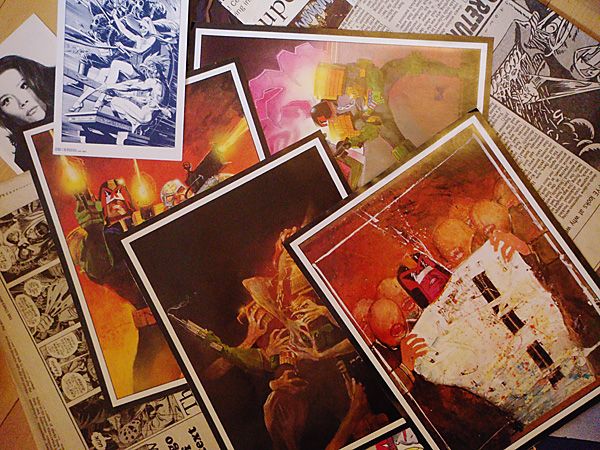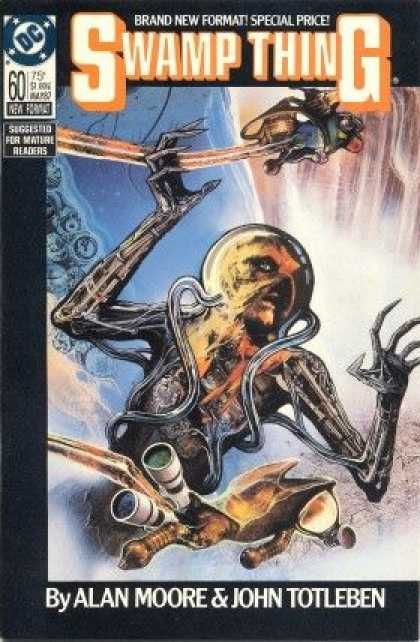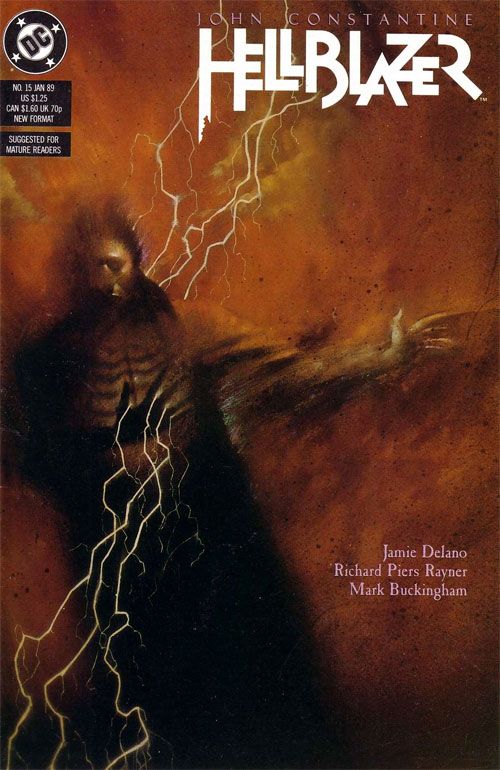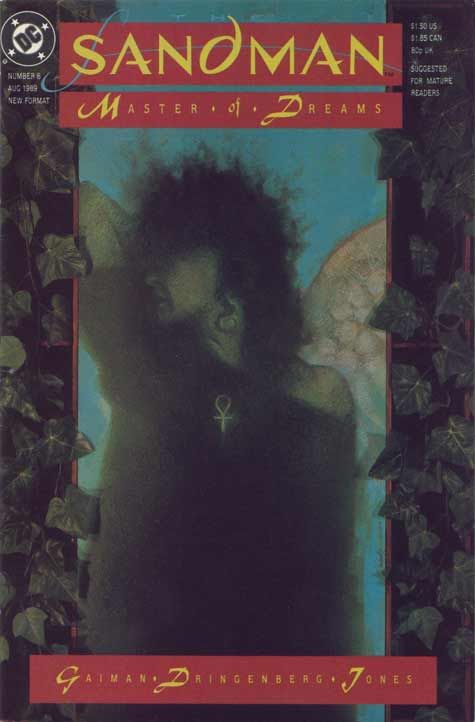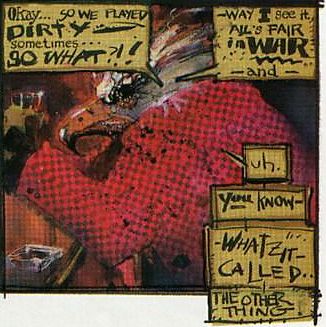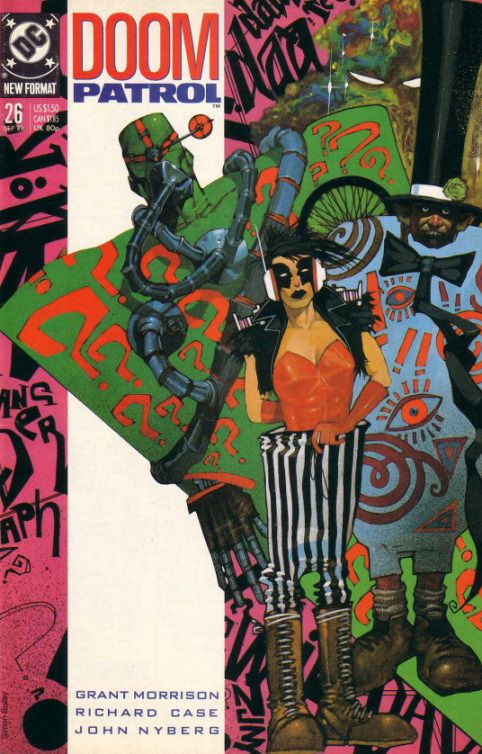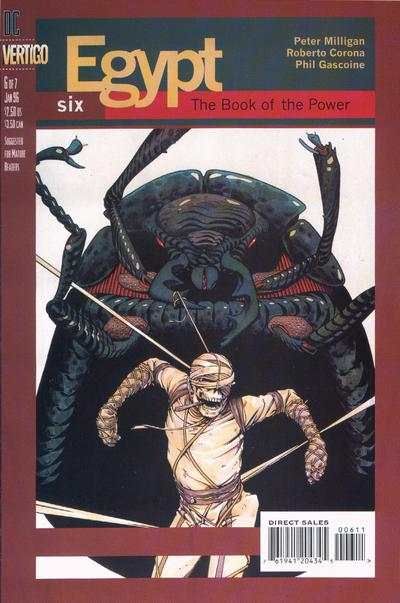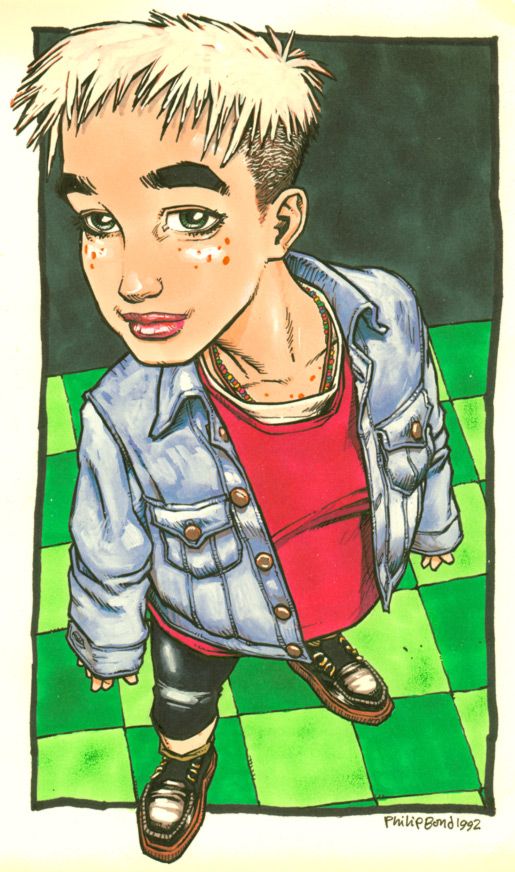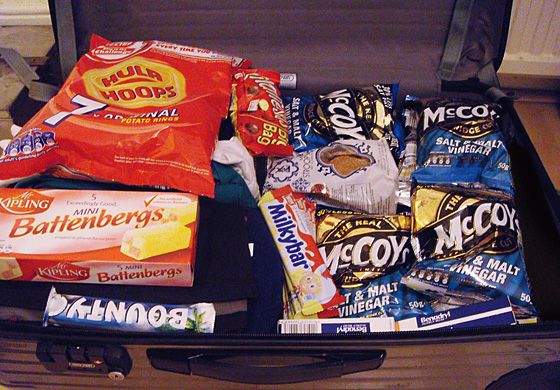Continuing the epic forage through my childhood comic book collection, moving into the realm of comix. Once I'd browsed and reminisced through my superhero comics to my hearts content, I moved on to the darker, more mysterious contents of the remaining boxes. Here I had apparently separated out my less heroic comics into their own looming piles. I can only imagine that I somehow sensed that someday in the future I'd want to reread these books for very different reasons than their superheroic counterparts. Looking through these comics was a far cry from the previous batch, when I could reminisce about my childhood dreams of discovering a latent super power (yes, I'll admit it, I was gutted when puberty did not bring with it the terrible power to move things with my mind, fly, or just shoot crazy lasers out of my eyes.) Here was the comic book collection of a self-imagined tragic figure who was, (like most young art students), completely serious about being serious.
The dichotomy of the two collections was a bit of a surprise to me, since at the time when I was buying the comics, the superhero and non-superhero work all felt like one big, happy family. However, the distinct look of the books clearly marked them as a departure from the brightly colored, heavily outlined affair of previous favored reading materials.
After the New Mutants rocked my world, it was pretty much to be expected that I’d jump right on the Elektra Assassin bandwagon. It was so damn good, that when I got too sick to go buy issue number 6, I sent my mum to the comic shop to pick it up for me. She came home with it and said in a shocked voice “You know, it was quite clean in that comic shop!” as if comic shops were inherently squalid. After that she was a little less disturbed by my comic reading, so I suppose I can thank Sienkiewicz and Miller for that too. Over the years, this is the book that continues to stand up for me over repeated readings. This is the alchemical result of a true collaboration between two men at the height of their creativity, exploring the comic book medium. I’ve said it before and I’ll say it again, this should be your favorite comic book. I would have taken the precious individual issues home to San Francisco, but I have a set of them that I found at WonderCon 2 years ago, as well as 2 copies of the original trade paperback, and the massive oversized hard cover that came out last year. So I decided that those original issues should stay where they are, safely in context, with the rest of my childhood collection.
Something that surprised me was how many issues of Swamp Thing I had in my collection. I knew I’d read them, but I thought that I’d only read a smattering at the time when they were coming out, when in fact I had a great collection of them. In retrospect it’s entirely possible that at the time, my developing ideas about love and intimacy were shaped by Abigail and Alec’s interaction. This comic book is really the last bridge between my previously superhero-dominated-comic reading and my bigger, broader appreciation of the medium. Part science hero, part superhero, part spiritual leader, part mimetic plant, part existential idea of a human… This is the series that blew the lid off any limitations of preconceived notions I might have had about what comic books could do or say. Love, life and loss were all covered in these books, and then some. It was an education, even if I didn’t know couldn't see that at the time. There's little point in dragging these books back to the US, since I have the whole run in trade paperbacks (that much more convenient to lend to friends.)
Then I came across a lovely little stack of Hellblazer, all the early ones, that I bought before I moved to San Francisco. The unexpected aspect of finding all of those early issues were the tremendous covers. It had been so long since I’d seen them, but those beautiful Dave McKean painted covers came back to me like old forgotten friends. Now I understand why I got so hooked so early on, even when it was a gruesome horror story which scared the pants off me, the covers were simply gorgeous. The minute he appeared in the pages of Swamp Thing, it’s completely understandable that I’d be fascinated by the character of John Constantine. As a Londoner, born and bred, I very much appreciated the introduction of a more urban, less urbane sort of a man, someone in touch with the ebbs and flows of the unseen world, but very much a part of the dirt and grit of the reality that I lived in. Over the years the book has evolved, changed into something more layered and complex, but looking at those old issues, as rough as the interiors were, they had a bare-bones charm that isn’t always present now. Rough and grim, those books will always remind me of the London I grew up in.
Sandman is sort of the most obvious choice for the irritating, black-clad teen that I’ve described myself as here. And yes, I found every single issue of Sandman in my parents house. Incidentally, last year someone passed on their pile of trade paperbacks, so I reread them pretty recently and I’m not entirely sure that they’re still my cup of tea. However, I'm still very glad to own every single issue. Even if an issue had a questionable interior, it still had a consistently marvelous cover. It's marvelous and is easily half of the appeal of Sandman. Rummaging further through the stack of books, I probably have a softer spot in my heart for the Death miniseries’. I loved those because they had all of the strangeness of her sibling’s books, with more warmth and humor. It's as if a character with truly horrific talent just didn’t need the trappings of austerity and misery… All in all, it's a great little family of folklore that Gaiman created and I enjoyed it. It's far too many comic books in one pile to take back to San Francisco, but if I ever ship that collection, I’ll be very happy to have these.
Back in the late 90’s, I already transported my Sienkiewicz work on The Shadow back to San Francisco (back then it was essential research material to use when trying to explain emotive typography to other graphic designers), but the book with similarly vibrant typography that I’d forgotten about was Brought to Light. Up until I unearthed it in my parent's house, I’d forgotten how very excited I was to buy it all those years ago. At the time I was a terribly earnest teen who thought everything was black and white (ethically speaking). More literally than V for Vendetta, Brought to Light was filled with the kind of overtly political imagery and metaphor that would stick with me for a lifetime. I might have forgotten that I owned it, but the idea of the bald eagle’s claw creeping off to do things all on it’s own, “the left hand doesn’t know what the right hand is doing” really stuck with me. I’ll never forget reading that, fascinated while I sat on the top floor of the bus on my way home, wearing my various layers of black clothing, furiously smoking (you could do that in those days, and I did because it made me feel very grown up, even if it was stinky and disgusting.) I thought that books like this would change the world. I should have brought it home to San Francisco, but again, how could I, without all the other great books from that era? It would be nothing out of the context of it's time.
Now I’m a big fan of Grant Morrison, which is why I bought a compilation of the Doom Patrol a few years ago. I read it while I was in line at the DMV (2 hours extremely well spent.) I did not know that I’d read Doom Patrol when it was coming out, but there it was, deep inside the boxes unearthed in my childhood home... How could I forget reading something so surreal and extraordinary? Did this mean that I had great taste, even 20 years ago? Or that I have a terrible memory now? Either way, it was nice to find them, but since I own the trade paperback, not worth bringing back to the US now.
Deep in amongst all of this self-important, groundbreaking work that I was apparently immersing myself in, were a couple of mini-series that I must have liked enough to save (back then I’d routinely cull the collection and give away piles of comic books), but weirdly I now don’t remember buying or reading them. These were Egypt and American Freak. I really don’t know what they are about anymore, but on superficial glance, the art looks alright and I wouldn’t mind a chance to read them properly. I have to be honest here, out of all the books, I thought about dragging these back to San Francisco with me, simply out of curiosity. But what if they weren’t any good? What if these damn, unknown miniseries’ were the only thing I brought back and they were rubbish? I couldn’t risk it.
At this point, I think that my curiosity at the changing nature of my beloved medium must have persuaded me that it would be interesting and useful to read a few issues of Deadline, Speakeasy and Revolver. As a Brit who eschewed 2000AD, this was my first exposure to some of the great British comic book writers and artists that I love now, even if their influence at the time was more of an overall effect. Standouts are Phillip Bond’s delicious Wired World, Jamie Hewlett’s great drawings of Tank Girl, and Peter Milligan and Brendan McCarthy’s endlessly confusing Rogan Gosh. Maybe I should have taken these back with me, I’d love to see if adult me found the stories as exciting as teen me did, but they feel like so much a part of the context that they were born in, to take them out of the collection seemed brutal and wrong.
So that’s the end of that. I left for San Francisco the next morning, and packed the nooks and crannies of my suitcase with Hula Hoops, Salt and Vinegar McCoy's, Milky Bars, and Maltesers. In this instance the needs of the body won out over those of intellect. More realistically, looking at the whole collection, getting every comic book out and reliving all the things that made me want to keep them back then, I couldn’t bear to split it up. I’m a slave to context in many ways, and keeping the collection in one piece is part of what I like about it. One day, when I’ve got a bit more time in the UK, I won’t just examine and ensure the collections safety, I’ll package it up and ship it all to home to the United States and unite the collection with the comic books that I’m still buying now. Then I really will have a lifetime of reading in my comic book library and each book will be in context!
I wonder if that means that I’ll have to change my alphabetical categorization into a chronological one...?

